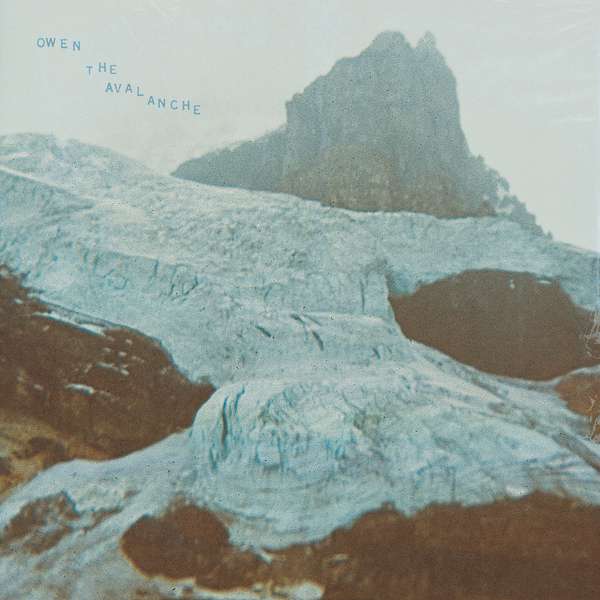I struggled rather mightily on how to summate longtime fandom into a concise review for this record, a Sisyphean task that was slowly running me into the ground. I even had a dream about Owen and woke up at 5 a.m. with some revelatory connection that would be my through line, but I fell back asleep and the conclusions eluded me once again. As such, it’s now late August and I’ve failed to capture the melancholic warmth that I find in Owen, even with two months to get acquainted with his latest album, The Avalanche. But we’ve all been robbed of a summer in any real sense of the concept, so this doesn’t actually qualify as a struggle.
Cap’n Jazz, Joan of Arc, American Football reunion -- if we really need to reset the stage this much on Mike Kinsella, then this might not be the place for you. The Chicago legend’s solo acoustic project Owen has garnered a dazzling cult following for half a generation, often feeling more like an elusive myth than a real person. He’s an absurdly talented multi-instrumentalist who can come off like Will Hunting, apathetic about the true gifts he possesses and occasionally displaying minimal interest in it at all. But that’s part of his appeal, as his fans obsess and pine over his work that he does as a side note, and it’s because he doesn’t care about fandom as a concept, not because he refuses to make music. I even recall the MySpace days, when Mike consistently posted the hate messages he got from uninformed “fans” who ripped him for covering “Never Meant” without giving credit to the songwriters. He would always respond curtly with responses like “um.. but I did write it. -MK”. I hope those threads are still hiding in some cobweb-filled corner of the internet.
Owen albums become ingrained pieces of your life, friends that you’re intimately acquainted with, which is why I’ve always approached new albums with apprehension, even if each new record is ordinarily only a slightly tweaked version of its predecessor. I hope that I’m not the only one who has inside jokes about recurring Owen melodies, lyrics, and intonations -- those are used lovingly, not mockingly. From the start of The Avalanche, we’re met with a lot of those recognizable acoustic overtones that slide in underneath drums and electric guitar solos. The melodies are somewhere between comfortably well-worn and nostalgically familiar, a balance Mike is adept at striking. I’m usually skeptical from the start, but the purity of the approach rings true this time around. The problems he’s now facing are more somber, full of embroiled spousal conflicts and failed bouts of sobriety. It’s intimate and confessional, as Mike can be, but he’s not always this blunt or vulgarly pessimistic. You could even call this a divorce album, one step beyond a traditional breakup album, not unlike The Good Life ’s Album of the Year or The Appleseed Cast’s Two Conversations.
The full band sound finally returns to that understated simplicity of I Do Perceive. Mike is routinely at his most honest in solo acoustic endeavors, but given that he plays nearly all the instruments, I’ve grown more appreciative over time. And with the comparatively less technical displays on this record, it feels like he got the majority of his math rock explorations out with American Football’s (LP2) and (LP3), even though we still get a dash of odd time signatures. Second single “On With The Show” shines brightly as a pop-forward gem, and oddly brings to mind the gorgeous 8-bit soundtrack of indie RPG Golf Story -- strange reference, I know, but don’t laugh. “The Contours” reminds me of the shoegaze tones of fan favorite “Playing Possum for a Peek,” and wouldn’t be out of place on the Lost in Translation soundtrack.
“It’s been a bad year for us both” is a magnificently relatable line found on “Wanting and Willing,” a ballad where he flexes his traditional folk band sensibilities. “Mom and Dead” is absolutely brutal when guest singer KC Dalager comes in, and ends up in a lush orchestral display that stands tall with Owen’s best. “To lovers unexplored” is the last line of the album, which gives a certain defiant optimism that’s historically unexpected, but offers a fitting endnote. The third act of “Dead For Days” is peak old-school Owen, where he builds these transitions and bridges that extend forever and give songs new life. At times it feels like he pulled some archaic demos from the vault and resurrected chords and riffs, expanding them into unexplored territory. All the ancillary instruments are more emphatic and well-balanced than ever before, a lavish assortment of violins and harps, bells and pianos, and you can even catch some woodwinds in there.
Even though I’ve heard nearly every introductory arpeggio chord that gets plucked, it hasn’t bothered me in the fifteen years I’ve listened to Owen, or as he frames it on “Mom and Dead”: “fifteen years of insignificance.” We’re standing at his tenth LP with The Avalanche, so if you’re no longer at that precarious, romantic part of your life, then you might think there’s little reason to pick up the new Owen record. Hats off to you if the reflection of deep-rooted shortcomings and emotional vulnerabilities aren’t what draws you to music like this in the first place. But Mike feels like he’s getting back in touch with that sentimental mindset before life got complicated, when it was more accepted to stew in self-deprecation and destruction. If you’re oversaturated with Owen, I can’t promise you that this record will change your mind. But if you’ve fallen out of favor, this is the album that will draw you back in, even if it takes a few rounds to work yourself into it. For what it’s worth, I can’t get these songs out of my head, and I wouldn’t want it any other way.





